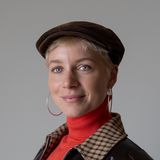Environment, social justice, economy – it’s becoming clear that our dominant systems are broken. In her 3-month DCFA Fellowship, Singapore-based urbanist Sarah Ichioka dives deeper into the possibilities for systemic change. What promising alternative systems and regenerative practices are already emerging around the world? And who are taking the first steps towards these essential changes?
In this first part of the Designing Cities for All: RE-generation programme’s series Regenerative Design , we untangle various knowledge systems from diverse perspectives, together with DCFA Fellow Sarah Ichioka , designers, professionals, students, storytellers, policymakers and other experts from many different disciplines. Where are collective actions most needed and where might they have the most impact?
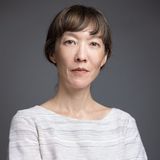
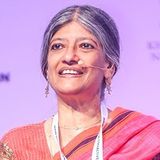
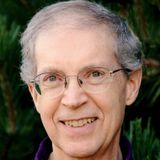
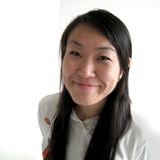
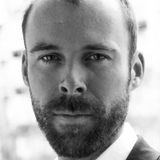
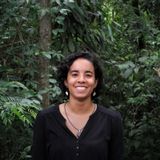
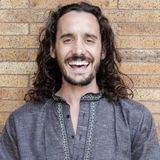
About the DCFA Fellow
Sarah Mineko Ichioka is an urbanist, strategist, curator and writer. She leads Desire Lines , a strategic consultancy for environmental, cultural, and social-impact initiatives and organizations. Her latest book, Flourish: Design Paradigms for Our Planetary Emergency , co-authored with Michael Pawlyn, proposes a bold set of regenerative design principles for addressing our compound environmental and social crises. In previous roles Sarah has explored the intersections of cities, society and ecology within leading international institutions of culture, policy and research, including as Director of The Architecture Foundation (UK) and Co-Director of the London Festival of Architecture (both from 2008- 2014).
Watch Sarah’s introduction of her DCFA Fellowship on Regenerative Design below!
More about the Speakers
Jayati Ghosh taught economics at Jawaharlal Nehru University, New Delhi for nearly 35 years, and since January 2021 she has been Professor of Economics at the University of Massachusetts Amherst, USA. She has authored and/or edited 20 books and more than 200 scholarly articles. Recent books include “The making of a catastrophe: Covid-19 and the Indian economy,” Aleph Books forthcoming 2022; “When governments fail: Covid-19 and the economy,” Tulika Books and Columbia University Press 2021 (co-edited). She has received several prizes, including the 2015 Adisheshaiah Award for distinguished contributions to the social sciences in India; the International Labour Organisation’s Decent Work Research Prize for 2011. . She has advised governments in India and other countries, including as Chairperson of the Andhra Pradesh Commission on Farmers’ Welfare in 2004, and Member of the National Knowledge Commission of India (2005-09). She is also a co-author of the book ‘Earth for All: A survival guide for humanity‘. The book is a survival guide to help steer humanity away from ecological and social catastrophe.
Trained as an astrophysicist, Dr. Gilman decided in the mid-70s that “the stars could wait, but the planet couldn’t.” He turned his attention to global sustainability, futures research, and strategies for positive cultural change. His on-the-ground sustainability efforts have included developing the Context Institute, co-founding the Global Ecovillage Network, doing Citizen Diplomacy with the former USSR, serving as City Councilman in Langley, Washington, and working nationally with the American Institute of Architects on issues regarding sustainability and the built environment. He is currently leading the worldwide Bright Future Network and its Bright Future Now “adventure tour to the future.” His approach synthesizes a deep understanding of cultural evolution, human capabilities, and systems awareness.
Yukiko Nezu is an architect and designer living in Amsterdam since 1997. After receiving a Master of Engineer in Tokyo and Amsterdam, she started freelance work for architecture offices. She is now the founder of Urbanberry Design, a studio that offers three dimensional designs that explore the relation between people, object and space. Continent vs island is an important element for her to think about spirits in creativity. Having both views makes a richness and it could be a standing point. Yukiko Nezu delivered different scales of design, from big area development to interior furniture, local activities, within different functions like an architect, a coordinator, and a concept builder. She creates as well as joins local activities and communities in Amsterdam West and New West, where she found many similarities with her hometown. Recently Urbanberry started a design research project about Tokyo canals together with Shibaura House supported by the Creative Industries Fund NL. Together they uncover the rich water front history and urban planning of Tokyo, with several stakeholders.
Thieu Besselink is an urbanist, educator, and practical philosopher with a thoroughly interdisciplinay backound who has always had one leg in academia and one leg in social enterprise. After his MSc and PhD with prof. Richard Sennett at the LSE and European University Institute he founded The Learning Lab and the Townmaking Institute to develop approaches to transformative learning, urban innovation, and collaborative innovation. Thieu’s endeavors in education center around approaches to regenerative practice, transdisciplinary honours education, professional development, collective and transformative pedagogy, and educational innovation. As consultant and social entrepreneur he advises governments, universities, and cities on transitions and strategies for resilience, regenerative development, participatory development, urban innovation leadership, and learning regions. Currently, he is leading the ‘Regenerative City’ summer school programme at Utrecht University.
Lisa Best is a nature enthusiast living in Suriname. For ten years, she collaborated on and led various projects in the non-profit sector on sustainable management of forests, climate change and livelihoods of indigenous and tribal communities, focusing on a social-ecological systems perspective and participatory approaches. Her current research aims to better understand the nexus between forests (and trees), water, climate and people in the rural and urban landscape in Suriname and use serious games as a tool to help decision-makers manage this nexus for the benefit of human wellbeing and nature. During 2018-2022, while working for Tropenbos Suriname, a local NGO, she spearheaded the work on urban green spaces for a livable city in Suriname in a fruitful collaboration with Prof. dr. Louise Willemen and dr. Nina Schwarz of the Faculty of Geoinformation Science and Earth Observation from the University of Twente (UT-ITC)*, which resulted among others in a citizen science monitoring network. Lisa is currently working as consultant on a variety of projects while doing her PhD research and enjoys seeking out ways to improve the human-nature relationship.
*UT-ITC has a special mandate from the Dutch Ministry of Foreign Affairs to work on international sustainability challenges using maps, satellites and other spatial information about people and their environment. ‘
Nick Demeris is a two time TEDx participant (speaker and host), actor, singer, and facilitator of community building through music, turning audiences into orchestras all around the globe. In his fourth year as a singer, creator, and teaching artist at Carnegie Hall in New York City, Nick works with master musicians, Public School teachers, aspiring artists, and young people in the juvenile justice system, to improvise, write, produce, and record original music: National Youth Orchestra (USA), Boston Children’s Chorus, Commedia Dell’Opera – OTOYOTOY, ITAC 4, Future Music Project, and member of Moving Star Ensemble. Nick travels the globe performing original music and teaching #humaninstruments workshops at retreats and conferences internationally. In the last three years alone he has toured this work to China, Thailand, Guatemala, Australia, Canada, Mexico, India, Denmark, Portugal, Hawaii, Colombia, Germany, and all across the U.S.
About Designing Cities for All: RE-generation
Over the past two years of Designing Cities for All (DCFA), we’ve learned about exclusion by design and the (re)design of inclusive cities. Along the journey, a certain question kept popping up: what exactly does ‘for all’ entail? After focusing mostly on the ‘who’ over the past two years, DCFA is rebooting as Designing Cities for All: RE-generation . This way around, the series is also incorporating the ‘what’ by looking through the fresh lens of regenerative design . This emerging field might very well be a promising answer to the challenges of our time, as it focuses on the design of products, services, systems and processes that lead to both social and ecological recovery and that keep the systems healthy.




